Maria Eagle, Minister of State for Defence, confirmed in response to a parliamentary question from James Cartlidge MP that the UK workshare in the Fleet Solid Support (FSS) ship programme remains unchanged.
She stated:
“The overall build strategy for the Fleet Solid Support (FSS) ships remains unchanged. All three ships will be assembled in the UK, with blocks manufactured in Navantia’s shipyards in Spain and in Harland and Wolff’s shipyards in the UK, retaining the overall UK workshare as originally planned.”
Eagle also reiterated the expected economic benefits of the programme, explaining:
“The value of the individual contracts is commercially sensitive information. It is expected that approximately 60 per cent of the contract value will be with UK companies. The FSS ship contract will create more than 1,200 UK shipyard jobs and around 800 jobs will be sustained in the UK supply chain. There is also substantial investment being made in the UK including around £100 million into UK shipyards.”
She further outlined the responsibilities of the programme’s prime contractor, Navantia UK:
“As prime contractor for the FSS Programme, Navantia UK is responsible for delivery of the contract and is in the process of letting a number of contracts to UK companies, in addition to those already let with BMT and Harland & Wolff.”


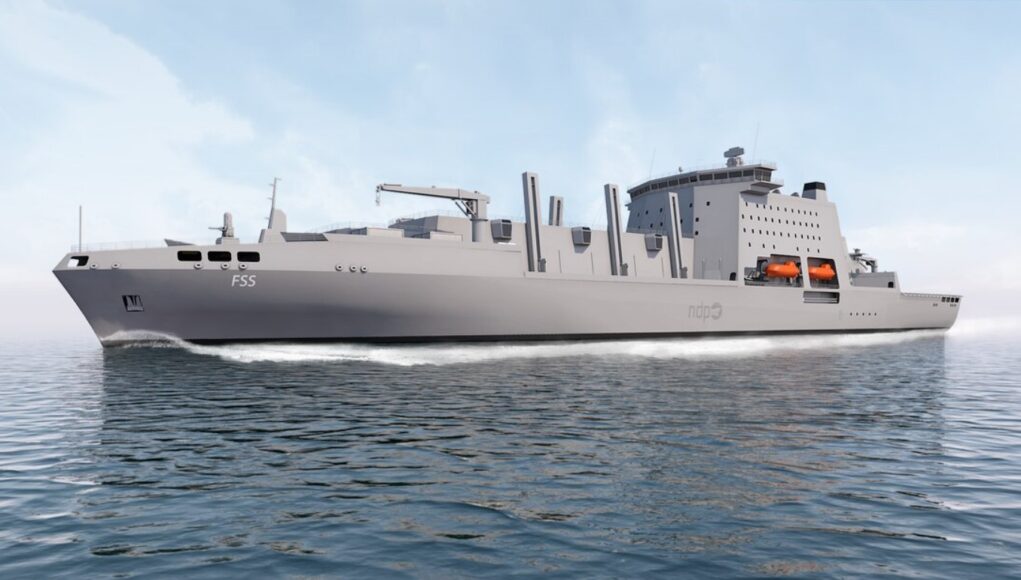
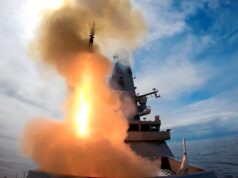
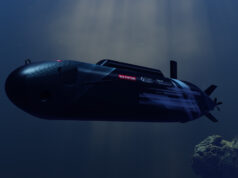
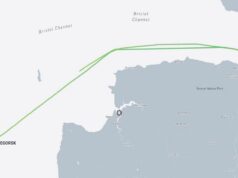
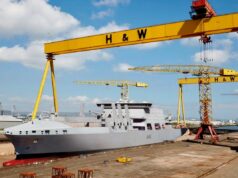
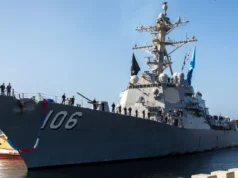
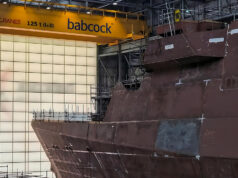
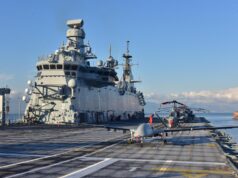
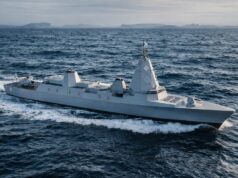
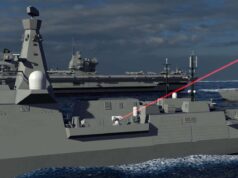
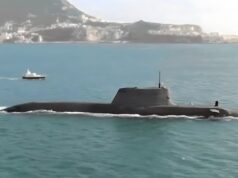

Contracts let… well that is a good sign at least.
Cheers CR
There was a time when it looked like this was to be reduced to 2 ships, glad it’s now solid for 3.
If you look at how some other countries order ships they do it in multiples of 3, good examples are Germany and South Korea. Germany has decided to do this going forwards as they calculate 3 is the optimum minimum number needed to ensure availability. One ship active / deployed, One ship in refit / maintenance and One ship Training / Working up.
Having just 1 or 2 ships just doesn’t work well, just think QE and Forts for examples.
Germany? Not very good example, they keep chopping ships off the end zone f the order books so don’t sent up with said multiples of 3
2 carriers is also plenty
With four leafs and three FSS all larger and more capable than the ships they replace we will have a very large auxiliary capacity relative to the size of the rest of the fleet. Mind you the US Navy is desperate for auxiliaries so perhaps this will be a capacity we can share.
The ‘Leafs’ have all gone, suspect you mean ‘four Tides’.
The last order chop I can think of that the Germans did was the Sachsen class, which went from 4 to 3.
But f125 wasn’t chopped from 4, nor where the k130s (in fact that orders been doubled)
Germany got all their U212As, and have placed orders for 6 212CDs…
So … Concrete example please?
Their F127 class was going to be 6, already reportedly reduced to 5, F125 will lose 1-2 ships to free up crews as well.
60% by value or bulk?
More complex sections will be built in Spain complexity = cost
Hope more of equipment and systems shall be UK provided for H&W installation as opposed to steel sections by weight
Of course value of the contracts are commercially sensitive but they’re also being renegotiated to include a rumoured 300m increase. The ability to renegotiate was a condition Navantia put on buying H&W or put it another way, UK government will be funding the Spainish government’s yards purchase of H&W.
Yes the last sentence is the killer, we are paying another country to purchase a U.K. asset. That asset might not be worth much but that is because of a lack of long term investment from HMG.
We wonder why we are economically struggling but it isn’t that difficult to see why.
Almost like giving up sovereign territory and then leasing it back isn’t it?
Giving away IBOT is a splendid idea chap! Don’t you know this Mauritius chaps are most definitely not in cahoots with China, will not give access to China at the first opportunity. There was eventually no spying involved in this deal.
The QC for Mauritius is not Starmers friend and neither is the U.K. negotiator.
Oh and we are so awash with money than rather than spending it on our Albion class ships that we mothball/sell we can give it away for territory we already own! Who needs 9bn anyways.
And for extra bonus we can annoy the Orange one just as he starts his 4 year terms and remind him that special relationship is not special and he can be a good chap and slap on the extra tariffs on uk goods and we have nothing to negotiate with to say look at this nice Diego Garcia we wouldn’t want anything to happen to it. Amazing!
Honestly what is the point. Harland and wolf is done as shipbuilder.
We could get cheaper ships with the same content value.
Other U.K. yards could build the ships for the same price.
The other UK yards wanted significantly more which is why the contract was delayed so many times and in the end it went to a foreign yard with British design and final assembly.
It’s not the worst outcome but given the small size of the fleet and the inability to sustain orders for three yards I think it would have been better to give it to South Korea.
The lack of work for 3 yards is a concern. I think have rosyth, Clyde and barrow is enough for the work load. They are all close enough to share skills etc.
Instead of propping up H & W the government should have just given Navantia the contract to build the ships, it would have saved money and time, RAF ships are not complex warships, they’re auxiliary’s which allows them to be built abroad if necessary, don’t write a shipbuilding strategy then abandon it for votes, the UK has to support a larger fleet if it wants to support more yards economically, simple maths. All I want is a firm order of a batch 2 T31 of 5 hulls instead of wasting resources and time looking at a T32 which never materialise and we’re on solid footing for the future of the RN and a commitment to the T83, hopefully at least 6 though I have a feeling we’ll get 3-4.
If T32 is a T31 with a reduced crew size I am all for it but I agree we don’t need to start something new. We just need 5 more frigates and quickly and cheaply as we can get them.
I would also say the second batch of T31/T32 should also take the acoustic signature reduction package offered by Babcock to make them more useful for NATO standing forces and North Atlantic patrol while the general purpose T31 can be sent off to the Gulf and Mediterranean where land attack cruise missiles are more useful but the submarine threat is minimal.
Why bother? We’ll only decommission them during their half-life period to save cost.
Might as well lease one, or pull another favour from the US.
Apparently good news, but lets be realistic. In August 2024 H&W claimed to have about 300 employees in Belfast. Having seen the shipyard in December, I doubt if they currently have even 30 FTEs. To build the FSSs I expect 1000 employees on short-term minimum wage contracts to arrive from Asia, plus a few dozen supervisors/managers arriving from Spain. How the olympic titan has fallen.
My bigger concern would be H&W’s future post FSS. As the wording buried in the deal implies Navantia have been able to renegotiate the costs for FSS for more money, so the UK Gov is in effect paying them to buy the yards.
Once FSS is done what’s to stop Navantia thinking they’ve done well out of it but they may as well asset strip H&W and sell off the land.
A Spanish owned company isn’t going to be bothered about generating longterm infrastructure and skills in Belfast and Devon!